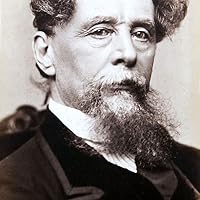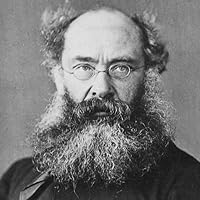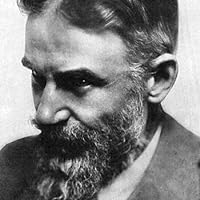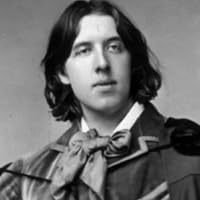Dickens Quotes
Quotes tagged as "dickens"
Showing 1-30 of 86

“Annual income twenty pounds, annual expenditure nineteen nineteen and six , result happiness.
Annual income twenty pounds, annual expenditure twenty pounds ought and six, result misery”
― David Copperfield
Annual income twenty pounds, annual expenditure twenty pounds ought and six, result misery”
― David Copperfield

“Happy, happy Christmas, that can win us back to the delusions of our childish days; that can recall to the old man the pleasures of his youth; that can transport the sailor and the traveller, thousands of miles away, back to his own fire-side and his quiet home!”
― The Pickwick Papers
― The Pickwick Papers

“LONDON. Michaelmas Term lately over, and the Lord Chancellor sitting in Lincoln’s Inn Hall. Implacable November weather. As much mud in the streets as if the waters had but newly retired from the face of the earth, and it would not be wonderful to meet a Megalosaurus, forty feet long or so, waddling like an elephantine lizard up Holborn Hill. Smoke lowering down from chimney-pots, making a soft black drizzle, with flakes of soot in it as big as full-grown snow-flakes — gone into mourning, one might imagine, for the death of the sun. Dogs, undistinguishable in mire. Horses, scarcely better; splashed to their very blinkers. Foot passengers, jostling one another’s umbrellas in a general infection of ill-temper, and losing their foot-hold at street-corners, where tens of thousands of other foot passengers have been slipping and sliding since the day broke (if the day ever broke), adding new deposits to the crust upon crust of mud, sticking at those points tenaciously to the pavement, and accumulating at compound interest.
Fog everywhere. Fog up the river, where it flows among green aits and meadows; fog down the river, where it rolls defiled among the tiers of shipping and the waterside pollutions of a great (and dirty) city. Fog on the Essex marshes, fog on the Kentish heights. Fog creeping into the cabooses of collier-brigs; fog lying out on the yards, and hovering in the rigging of great ships; fog drooping on the gunwales of barges and small boats. Fog in the eyes and throats of ancient Greenwich pensioners, wheezing by the firesides of their wards; fog in the stem and bowl of the afternoon pipe of the wrathful skipper, down in his close cabin; fog cruelly pinching the toes and fingers of his shivering little ’prentice boy on deck. Chance people on the bridges peeping over the parapets into a nether sky of fog, with fog all round them, as if they were up in a balloon, and hanging in the misty clouds.
Gas looming through the fog in divers places in the streets, much as the sun may, from the spongey fields, be seen to loom by husbandman and ploughboy. Most of the shops lighted two hours before their time — as the gas seems to know, for it has a haggard and unwilling look.
The raw afternoon is rawest, and the dense fog is densest, and the muddy streets are muddiest near that leaden-headed old obstruction, appropriate ornament for the threshold of a leaden-headed old corporation, Temple Bar. And hard by Temple Bar, in Lincoln’s Inn Hall, at the very heart of the fog, sits the Lord High Chancellor in his High Court of Chancery.”
― Bleak House
Fog everywhere. Fog up the river, where it flows among green aits and meadows; fog down the river, where it rolls defiled among the tiers of shipping and the waterside pollutions of a great (and dirty) city. Fog on the Essex marshes, fog on the Kentish heights. Fog creeping into the cabooses of collier-brigs; fog lying out on the yards, and hovering in the rigging of great ships; fog drooping on the gunwales of barges and small boats. Fog in the eyes and throats of ancient Greenwich pensioners, wheezing by the firesides of their wards; fog in the stem and bowl of the afternoon pipe of the wrathful skipper, down in his close cabin; fog cruelly pinching the toes and fingers of his shivering little ’prentice boy on deck. Chance people on the bridges peeping over the parapets into a nether sky of fog, with fog all round them, as if they were up in a balloon, and hanging in the misty clouds.
Gas looming through the fog in divers places in the streets, much as the sun may, from the spongey fields, be seen to loom by husbandman and ploughboy. Most of the shops lighted two hours before their time — as the gas seems to know, for it has a haggard and unwilling look.
The raw afternoon is rawest, and the dense fog is densest, and the muddy streets are muddiest near that leaden-headed old obstruction, appropriate ornament for the threshold of a leaden-headed old corporation, Temple Bar. And hard by Temple Bar, in Lincoln’s Inn Hall, at the very heart of the fog, sits the Lord High Chancellor in his High Court of Chancery.”
― Bleak House

“Mr Lorry asks the witness questions:
Ever been kicked?
Might have been.
Frequently? No. Ever kicked down stairs?
Decidedly not; once received a kick at the top of a staircase, and fell down stairs of his own accord.”
― A Tale of Two Cities
Ever been kicked?
Might have been.
Frequently? No. Ever kicked down stairs?
Decidedly not; once received a kick at the top of a staircase, and fell down stairs of his own accord.”
― A Tale of Two Cities

“A heart well worth winning, and well won. A heart that, once won, goes through fire and water for the winner, and never changes, and is never daunted.”
― Our Mutual Friend
― Our Mutual Friend

“You are hard at work madam ," said the man near her.
Yes," Answered Madam Defarge ; " I have a good deal to do."
What do you make, Madam ?"
Many things."
For instance ---"
For instance," returned Madam Defarge , composedly ,
Shrouds."
The man moved a little further away, as soon as he could, feeling it mightily close and oppressive .”
― A Tale of Two Cities
Yes," Answered Madam Defarge ; " I have a good deal to do."
What do you make, Madam ?"
Many things."
For instance ---"
For instance," returned Madam Defarge , composedly ,
Shrouds."
The man moved a little further away, as soon as he could, feeling it mightily close and oppressive .”
― A Tale of Two Cities

“Where would David Copperfield be if Dickens had gone to writing classes? Probably about seventy minor characters short, is where. (Did you know that Dickens is estimated to have invented thirteen thousand characters? Thirteen thousand! The population of a small town!)”
― The Polysyllabic Spree
― The Polysyllabic Spree

“Good for Christmas-time is the ruddy colour of the cloak in which--the tree making a forest of itself for her to trip through, with her basket--Little Red Riding-Hood comes to me one Christmas Eve to give me information of the cruelty and treachery of that dissembling Wolf who ate her grandmother, without making any impression on his appetite, and then ate her, after making that ferocious joke about his teeth. She was my first love. I felt that if I could have married Little Red Riding-Hood, I should have known perfect bliss. But, it was not to be; and there was nothing for it but to look out the Wolf in the Noah's Ark there, and put him late in the procession on the table, as a monster who was to be degraded.”
― A Christmas Tree
― A Christmas Tree

“That, they never could lay their heads upon their pillows; that, they could never tolerate the idea of their wives laying their heads upon their pillows; that, they could never endure the notion of their children laying their heads on their pillows; in short , that there never more could be , for them or theirs , any laying of heads upon pillows at all , unless the prisioner's head was taken off.
The Attorney General during the trial of Mr. Darnay ”
― A Tale of Two Cities
The Attorney General during the trial of Mr. Darnay ”
― A Tale of Two Cities

“I sit in my room like Miss Havisham, about whom I have been reading this week. Better the Dickens you know than the Dickens you don't know - on the whole I enjoyed it. But I should like to say something about this 'irrepressible vitality', this 'throwing a fresh handful of characters on the fire when it burns low', in fact the whole Dickens method - it strikes me as being less ebullient, creative, vital, than hectic, nervy, panic-stricken. If he were a person I should say 'You don't have to entertain me, you know. I'm quite happy just sitting here.' This jerking of your attention, with queer names, queer characters, aggressive rhythms, piling on adjectives - seems to me to betray basic insecurity in his relation with the reader. How serenely Trollope, for instance, compares. I say in all seriousness that, say what you like about Dickens as an entertainer, he cannot be considered as a real writer at all; not a real novelist. His is the garish gaslit melodramatic barn (writing that phrase makes me wonder if I'm right!) where the yokels gape: outside is the calm measureless world, where the characters of Eliot, Trollope, Austen, Hardy (most of them) and Lawrence (some of them) have their being.”
― Philip Larkin: Letters to Monica
― Philip Larkin: Letters to Monica

“Mrs. Pocket was at home, and was in a little difficulty, on account of the baby's having been accommodated with a needle case to keep him quiet during the unaccountable absence (with a relative in the Foot Guards) of Millers. And more needles were missing than it could be regarded as quite wholesome for a patient of such tender years either to apply externally or to take as a tonic.”
―
―

“You don't know how you haunt and bewilder me. You don't know how the cursed carelessness that is over-officious in helping me at every other turning of my life WON'T help me here. You have struck it dead, I think, and I sometimes wish you had struck me dead along with it.”
―
―

“The year was dying early, the leaves were falling fast, it was a raw cold day when we took possession, and the gloom of the house was most depressing. The cook (an amiable woman, but of a weak turn of intellect) burst into tears on beholding the kitchen, and requested that her silver watch might be delivered over to her sister (2 Tuppintock’s Gardens, Liggs’s Walk, Clapham Rise), in the event of anything happening to her from the damp. Streaker, the housemaid, feigned cheerfulness, but was the greater martyr. The Odd Girl, who had never been in the country, alone was pleased, and made arrangements for sowing an acorn in the garden outside the scullery window, and rearing an oak.”
― Three Ghost Stories
― Three Ghost Stories

“(On Charles Dickens) It has been the peculiarity and the marvel of this man’s power, that he has invested his puppets with a charm that has enabled him to dispense with human nature.”
― Autobiography of Anthony Trollope
― Autobiography of Anthony Trollope

“(from his random observations after reading David Copperfield by Charles Dickens)
In the Old Curiosity Shop I discovered that in the character of Dick Swiveller, Dickens provided P.G. Wodehouse with pretty much the whole of his oeuvre. In David Copperfield, David's bosses Spenlow and Jorkins are what must be the earliest fictional representations of good cop/bad cop.”
― The Polysyllabic Spree
In the Old Curiosity Shop I discovered that in the character of Dick Swiveller, Dickens provided P.G. Wodehouse with pretty much the whole of his oeuvre. In David Copperfield, David's bosses Spenlow and Jorkins are what must be the earliest fictional representations of good cop/bad cop.”
― The Polysyllabic Spree

“I read Dickens and Shakespear without shame or stint; but their pregnant observations and demonstrations of life are not co-ordinated into any philosophy or religion: on the contrary, Dickens's sentimental assumptions are violently contradicted by his observations; and Shakespear's pessimism is only his wounded humanity. Both have the specific genius of the fictionist and the common sympathies of human feeling and thought in pre-eminent degree. They are often saner and shrewder than the philosophers just as Sancho-Panza was often saner and shrewder than Don Quixote. They clear away vast masses of oppressive gravity by their sense of the ridiculous, which is at bottom a combination of sound moral judgment with lighthearted good humor. But they are concerned with the diversities of the world instead of with its unities: they are so irreligious that they exploit popular religion for professional purposes without delicacy or scruple (for example, Sydney Carton and the ghost in Hamlet!): they are anarchical, and cannot balance their exposures of Angelo and Dogberry, Sir Leicester Dedlock and Mr Tite Barnacle, with any portrait of a prophet or a worthy leader: they have no constructive ideas: they regard those who have them as dangerous fanatics: in all their fictions there is no leading thought or inspiration for which any man could conceivably risk the spoiling of his hat in a shower, much less his life. Both are alike forced to borrow motives for the more strenuous actions of their personages from the common stockpot of melodramatic plots; so that Hamlet has to be stimulated by the prejudices of a policeman and Macbeth by the cupidities of a bushranger. Dickens, without the excuse of having to manufacture motives for Hamlets and Macbeths, superfluously punt his crew down the stream of his monthly parts by mechanical devices which I leave you to describe, my own memory being quite baffled by the simplest question as to Monks in Oliver Twist, or the long lost parentage of Smike, or the relations between the Dorrit and Clennam families so inopportunely discovered by Monsieur Rigaud Blandois. The truth is, the world was to Shakespear a great "stage of fools" on which he was utterly bewildered. He could see no sort of sense in living at all; and Dickens saved himself from the despair of the dream in The Chimes by taking the world for granted and busying himself with its details. Neither of them could do anything with a serious positive character: they could place a human figure before you with perfect verisimilitude; but when the moment came for making it live and move, they found, unless it made them laugh, that they had a puppet on their hands, and had to invent some artificial external stimulus to make it work.”
― Man and Superman
― Man and Superman

“And if you was to walk through the bedrooms now, you'd see the ragged, mouldy bedclothes a-heaving and a-heaving like seas." "And a-heaving and a-heaving with what?" he says. "Why, with the rats under 'em.
'Tom Tiddler's Ground' by Charles Dickens, 1861”
― Rats
'Tom Tiddler's Ground' by Charles Dickens, 1861”
― Rats

“Oh! but he was a tight-fisted hand at the grindstone, Scrooge! A squeezing, wrenching, grasping, scraping, clutching, covetous old sinner!”
― A Christmas Carol
― A Christmas Carol

“If I could work my will, every idiot who goes about with ‘Merry Christmas’ on his lips should be boiled with his own pudding and buried with a stake of holly through his heart. He should!”
― A Christmas Carol
― A Christmas Carol

“Haggard anxiety and remorse are bad companions to be barred up with. Brooding all day, and resting very little indeed at night, will not arm a man against misery. Net morning, Clennam felt that his health was sinking, as his spirits had already sunk and that the weight under which he bent was bearing him down."
-p. 705, Little Dorrit”
― Little Dorrit
-p. 705, Little Dorrit”
― Little Dorrit

“I will live in the Past, Present and the Future. The Spirits of all Three shall strive within me. I will not shut out the lessons that they teach.”
― A Christmas Carol
― A Christmas Carol

“The Moonstone is the first, the longest, and the best of modern English detective novels. But it is something more important than that; it is the best of all the novels written by that man who among the novelists of the nineteenth century was in every way the most closely associated with Charles Dickens. You cannot appreciate Collins without taking Dickens into account; and the work of Dickens after 1850 would not be what it is but for the reciprocal influence of Collins.”
―
―

“We are bound, on the authority of Mr. Pickwick, to state, that Mr. Tupman's mode of proceeding evinced far more of prudence and deliberation, than that adopted by Mr. Winkle. Still, this by no means detracts from the great authority of the latter gentleman, on all matters connected with the field; because, as Mr. Pickwick beautifully observes, it has somehow or other happened, from time immemorial, that many of the best and ablest philosophers, who have been perfect lights of science in matters of theory, have been wholly unable to reduce them to practice.”
―
―

“When the cadres banned his students from singing any actual Christmas carols in a stage version of ''A Christmas Carol,'' he had them substitute patriotic Communist songs -- which actually improved Dickens: ''My favorite scene was when a furious Scrooge swung his cane at a band of merry carolers who were belting out 'The East Is Red,' singing the praises of Mao Zedong while the old man shouted, 'Humbug!”
― River Town: Two Years on the Yangtze
― River Town: Two Years on the Yangtze

“Philip said that the older he got the more he realised that everyone in Dickens, without exception, was a real person, and quite a lot of them were among his friends.”
― Growing Up
― Growing Up

“It is required of every man... that the spirit within him should walk abroad among his fellow men, and travel far and wide; and if that spirit goes not forth in life, it is condemned to do so after death... It is doomed to wander through the world... and witness what it cannot share, but might have shared on earth, and turned to happiness.”
― A Christmas Carol
― A Christmas Carol
All Quotes
|
My Quotes
|
Add A Quote
Browse By Tag
- Love Quotes 97.5k
- Life Quotes 76k
- Inspirational Quotes 73k
- Humor Quotes 44k
- Philosophy Quotes 29.5k
- Inspirational Quotes Quotes 27k
- God Quotes 26k
- Truth Quotes 23.5k
- Wisdom Quotes 23.5k
- Romance Quotes 23k
- Poetry Quotes 22k
- Death Quotes 20k
- Happiness Quotes 18.5k
- Life Lessons Quotes 18.5k
- Hope Quotes 18k
- Faith Quotes 18k
- Quotes Quotes 16.5k
- Inspiration Quotes 16.5k
- Spirituality Quotes 15k
- Religion Quotes 15k
- Motivational Quotes 15k
- Writing Quotes 15k
- Relationships Quotes 14.5k
- Life Quotes Quotes 14k
- Love Quotes Quotes 14k
- Success Quotes 13.5k
- Time Quotes 12.5k
- Motivation Quotes 12k
- Science Quotes 11.5k
- Motivational Quotes Quotes 11.5k


